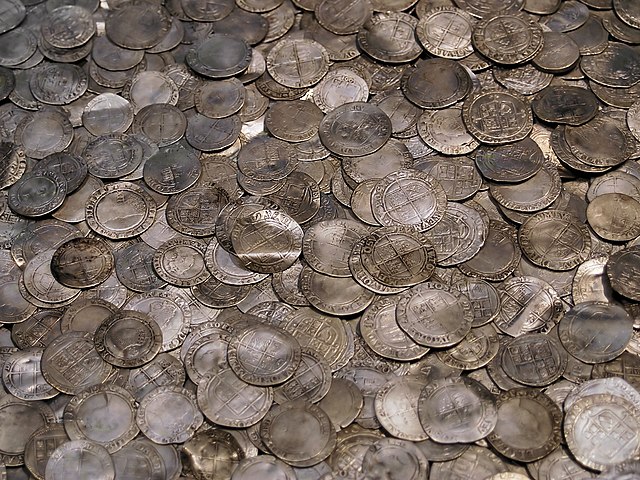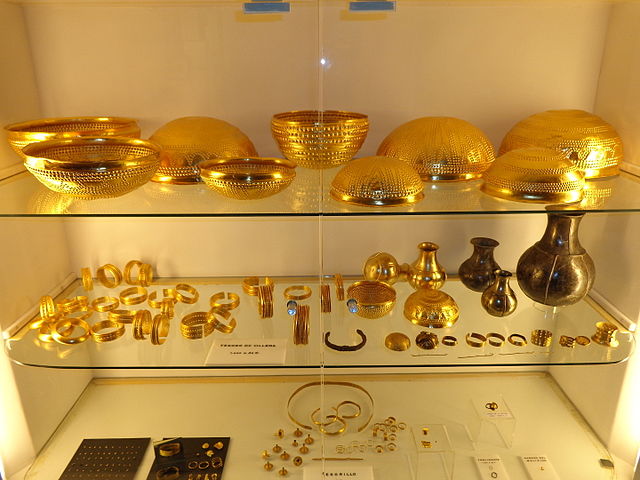The Eberswalde Hoard or Treasure of Eberswalde is a Bronze Age hoard of 81 gold objects with a total weight of 2.59 kg (83 ozt). The largest prehistoric assembly of gold objects ever found in Germany, it is considered to be one of the most important finds from the Central European Bronze Age. Its production has been attributed to the Nordic Bronze Age culture. Today, it is in Russia, as part of the group of artifacts and works of art looted from Germany at the end of the Second World War.
Eberswalde Hoard
Items from the Eberswalde Hoard (Replica; Museum für Vor- und Frühgeschichte, Berlin
Eberswalde Hoard gold bowls (replica)
Eberswalde Hoard
A hoard or "wealth deposit" is an archaeological term for a collection of valuable objects or artifacts, sometimes purposely buried in the ground, in which case it is sometimes also known as a cache. This would usually be with the intention of later recovery by the hoarder; hoarders sometimes died or were unable to return for other reasons before retrieving the hoard, and these surviving hoards might then be uncovered much later by metal detector hobbyists, members of the public, and archaeologists.
A hoard of silver coins, the latest about 1700 (British Museum).
Treasure of Villena, 1000 BC, the biggest prehistoric gold hoard in Western Europe. Discovered in 1963.






